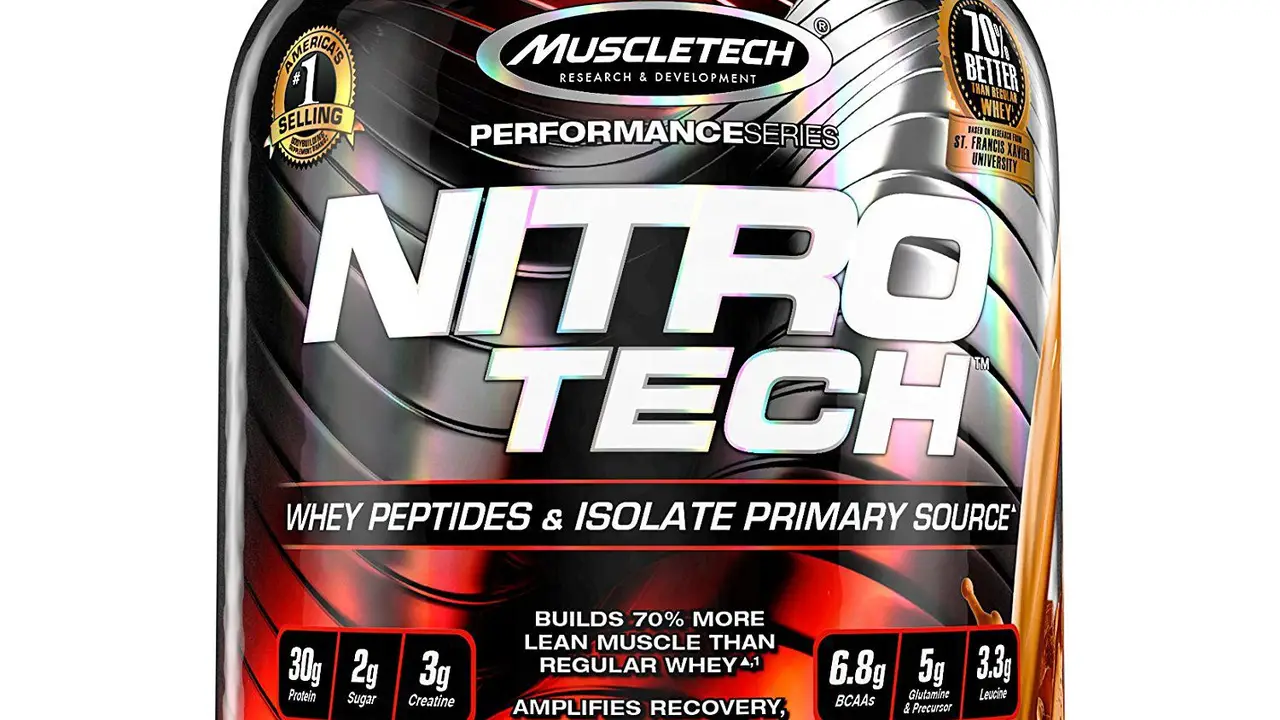7 Best Protein Powders for Muscle Growth
Discover the top 7 protein powders to fuel your muscle growth and recovery. This guide compares whey, casein, and plant-based options. Learn which protein powder best suits your fitness goals and dietary needs for optimal results.

Understanding Protein Powders for Muscle Growth Supplements
So, you're looking to pack on some muscle? Excellent choice! Protein powders are a fantastic tool in your arsenal, but with so many options out there, it can feel like navigating a minefield. Let's break it down. Protein is essential for muscle repair and growth – it's the building block your body uses after you hit the gym hard. Protein powders simply provide a convenient and efficient way to get enough protein, especially when you're struggling to meet your daily needs through food alone. They come in various forms, each with its own benefits and drawbacks. We'll explore the most popular types and help you find the perfect fit for your goals.
Whey Protein: The Gold Standard for Muscle Building
Whey protein is arguably the most popular and well-researched protein powder on the market. It's derived from milk during the cheese-making process and is known for its rapid absorption rate, making it ideal for post-workout recovery. Whey protein comes in three main forms:
- Whey Protein Concentrate (WPC): Contains about 70-80% protein, with some lactose and fat. It's generally the most affordable option.
- Whey Protein Isolate (WPI): Undergoes further processing to remove most of the lactose and fat, resulting in a higher protein content (around 90% or more). It's a good choice for those with lactose sensitivities.
- Whey Protein Hydrolysate (WPH): Is pre-digested, meaning it's broken down into smaller peptides for even faster absorption. It's often more expensive but may be beneficial for those with digestive issues.
Recommended Whey Protein Products
Optimum Nutrition Gold Standard 100% Whey
This is a classic for a reason. It's a blend of WPI, WPC, and whey peptides, offering a good balance of quality, taste, and affordability. It mixes easily and comes in a wide variety of flavors. A 5-pound tub typically costs around $60.
Use Case: Ideal for post-workout shakes or as a quick protein boost throughout the day.
Isopure Zero Carb Whey Protein Isolate
If you're strictly watching your carbs and fats, Isopure is a great option. It's virtually lactose-free and provides a high dose of pure whey protein isolate. A 3-pound tub usually goes for around $50.
Use Case: Suitable for those on low-carb diets or with lactose intolerance, perfect for post-workout or anytime you need a clean protein source.
Casein Protein: The Slow-Digesting Nighttime Protein
Casein protein is another milk-derived protein, but unlike whey, it's digested much more slowly. This makes it an excellent choice for nighttime consumption, as it provides a sustained release of amino acids throughout the night, preventing muscle breakdown during sleep. It's also thicker than whey, which can make it more satiating.
Recommended Casein Protein Products
Optimum Nutrition Gold Standard 100% Casein
Just like their whey protein, Optimum Nutrition's casein is a solid choice. It mixes well for a casein protein (which can sometimes be clumpy) and comes in several palatable flavors. A 4-pound tub typically costs around $50.
Use Case: Best taken before bed to support muscle recovery and growth overnight.
MusclePharm Combat 100% Casein
MusclePharm's casein offers a sustained release of amino acids and is designed to support muscle recovery while you sleep. It's another reliable option with decent flavor profiles. A 4-pound tub is usually priced around $45.
Use Case: Ideal for nighttime consumption to prevent muscle breakdown during sleep and promote recovery.
Plant-Based Protein: Vegan Options for Muscle Growth and Recovery
For those following a vegan or vegetarian diet, or simply looking to reduce their dairy intake, plant-based protein powders are a fantastic alternative. These powders are typically made from a blend of sources like pea protein, brown rice protein, soy protein, and hemp protein. Blending different sources helps ensure a complete amino acid profile, which is crucial for muscle growth.
Recommended Plant-Based Protein Products
Vega Sport Premium Protein
Vega Sport is a popular choice for plant-based athletes. It contains a blend of pea protein, brown rice protein, and alfalfa protein, and is fortified with BCAAs and glutamine for enhanced recovery. A 1.6-pound tub typically costs around $40.
Use Case: Suitable for post-workout recovery or as a general protein supplement for vegans and vegetarians.
Garden of Life Sport Organic Plant-Based Protein
If you're looking for an organic and clean plant-based protein, Garden of Life is a great option. It's made from a blend of organic pea protein, organic navy bean, organic lentil bean, organic garbanzo bean, and organic cranberry seed protein. A 30-serving container usually sells for around $45.
Use Case: Ideal for those seeking a clean and organic plant-based protein source, perfect for post-workout or anytime you need a protein boost.
Protein Powder Comparison and Choosing the Right One for You
Okay, so we've covered the basics. But how do you choose the *right* protein powder for *you*? Here's a quick comparison table:
| Protein Type | Absorption Rate | Best For | Considerations | Typical Price (per serving) |
|---|---|---|---|---|
| Whey Protein | Fast | Post-workout, quick protein boost | May contain lactose | $1.00 - $1.50 |
| Casein Protein | Slow | Nighttime consumption, sustained release | Can be thicker texture | $1.20 - $1.80 |
| Plant-Based Protein | Variable (depending on blend) | Vegan/vegetarian diets, dairy sensitivities | Ensure complete amino acid profile | $1.50 - $2.00 |
Consider these factors when making your decision:
- Your Dietary Needs: Vegan? Lactose intolerant? Choose accordingly.
- Your Goals: Building muscle? Losing weight? Different protein types can support different goals.
- Your Budget: Protein powders can range in price. Find one that fits your budget without sacrificing quality.
- Taste and Texture: Let's be honest, if it tastes awful, you won't use it. Read reviews and try samples if possible.
Protein Powder Usage Scenarios and Tips for Optimal Results
So you've got your protein powder. Now what? Here are a few scenarios and tips to maximize its effectiveness:
- Post-Workout: This is the most crucial time to consume protein. Aim for 20-40 grams of whey protein within an hour of your workout to kickstart muscle recovery.
- Breakfast: Adding protein powder to your oatmeal or smoothie can help keep you feeling full and energized throughout the morning.
- Snack: A protein shake can be a healthy and convenient snack option between meals, especially when you're on the go.
- Before Bed: Casein protein is ideal for preventing muscle breakdown during sleep.
Important Tips:
- Read the Label: Pay attention to the serving size and nutritional information.
- Mix Properly: Use a shaker bottle or blender to ensure a smooth and lump-free shake.
- Don't Overdo It: While protein is important, it's still just one part of a balanced diet. Don't rely solely on protein powder.
- Listen to Your Body: If you experience any digestive issues, try a different protein type or consult with a healthcare professional.
Other Protein Powder Options and Considerations
Beyond whey, casein, and plant-based proteins, there are a few other options worth mentioning:
- Egg White Protein: A good dairy-free alternative with a complete amino acid profile.
- Beef Protein Isolate: Another dairy-free option, derived from beef.
- Blended Protein Powders: These contain a mix of different protein sources for a more complete amino acid profile and sustained release.
Ultimately, the best protein powder for you is the one that meets your individual needs, preferences, and goals. Do your research, experiment with different options, and find what works best for your body.
:max_bytes(150000):strip_icc()/277019-baked-pork-chops-with-cream-of-mushroom-soup-DDMFS-beauty-4x3-BG-7505-5762b731cf30447d9cbbbbbf387beafa.jpg)






